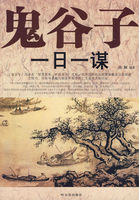The Court of France was extremely agreeable until the King had the misfortune to marry that old Maintenon; she withdrew him from company, filled him with ridiculous scruples respecting plays, and told him that he ought not to see excommunicated persons. In consequence of this she had a small theatre erected in her own apartments, where plays were acted twice a week before the King. Instead of the dismissed comedians, [These dismissed comedians had, as appears by the edition of 1788, renounced their profession, and had been admitted to the communion.
After that, Madame de Maintenon no longer saw any sin in them.] she had the Dauphine, my son, the Duc de Berri, and her own nieces, to play; in her opinion this was much better than the real comedians. The King, instead of occupying his usual place, was seated behind me in a corner, near Madame de Maintenon. This arrangement spoilt all, for the consequence was that few people saw him, and the Court was almost deserted.
Maintenon told me that the King said to her, "Now that I am old my children get tired of me and are delighted to find any opportunity of fixing me here and going elsewhere for their own amusement; Madame alone stays, and I see that she is glad to be with me still." But she did not tell me that she had done all in her power to persuade him of the contrary, and that the King spoke thus by way of reproaching her for the lies she had invented about me. I learned that afterwards from others.
If the King had been my father I could not have loved him more than I did; I was always pleased to be with him.
He was fond of the German soldiers, and said that the German horsemen displayed more grace in the saddle than those of any other nation.
When the King had a design to punish certain libertines, Fagon --[Guy Crescent Fagon, appointed the King's chief physician in 1693, died in 1718.]-- had an amusing conversation with him. He said,--
"Folks made love long before you came into the world, and they will always continue to do so. You cannot prevent them; and when I hear preachers talking in the pulpit and railing against such as yield to the influence of passion, I think it is very much as if I should say to my phthisical patients, 'You must not cough; it is very wrong to spit.'
Young folks are full of humours, which must be dispersed by one way or another."
The King could not refrain from laughing.
He was only superstitious in religious matters; for example, with respect to the miracles of the Virgin, etc.
He had been taught to believe that to make friends with his brother was a great political stroke and a fine State device; that it made a part of what is called to reign well.
Since the time of this King it has not been the custom for ladies to talk of the affairs of the State.
If the King heard that any one had spoken ill of him, he displayed a proud resentment towards the offender; otherwise it was impossible to be more polite and affable than he was. His conversation was pleasing in a high degree. He had the skill of giving an agreeable turn to everything.
His manner of talking was natural, without the least affectation, amiable and obliging. Although he had not so much courage as Monsieur, he was still no coward. His brother said that he had always behaved well in occasions of danger; but his chief fault lay in being soon tired of war, and wishing to return home.
From the time of his becoming so outrageously devout, all amusements were suspended for three weeks (at Easter); and before, they were only discontinued a fortnight.
The King had a peculiarity of disposition which led him easily to behave harshly to persons who were disagreeable to such as he loved. It was thus that La Valliere was so ill-treated at the instigation of Montespan.
He was much amused with the Comte de Grammont, --[Philibert, Comte de Grammont, St. Evremond's hero, and so well known by means of the Memoirs of Count Antoine Hamilton, his brother-in-law.]-- who was very pleasant.
He loaded him with proofs of his kindness, and invited him to join in all the excursions to Marly, a decided mark of great favour.
The King frequently complained that in his youth he had not been allowed to converse with people generally, but it was the fault of his natural temper; for Monsieur, who had been brought up with him, used to talk to everybody.
Louis XIV. used to say, laughingly, to Monsieur that his eternal chattering had put him out of conceit with talking. "Ah, mon Dieu!" he would say, "must I, to please everybody, say as many silly things as my brother?"
In general, they would not have been taken for brothers. The King was a large man, and my husband a small one: the latter had very effeminate inclinations; he loved dress, was very careful of his complexion, and took great interest in feminine employments and in ceremonies. The King, on the contrary, cared little about dress, loved the chase and shooting, was fond of talking of war, and had all manly tastes and habits.
Monsieur behaved well in battle, but never talked of it; he loved women as companions, and was pleased to be with them. The King loved to see them somewhat nearer, and not entirely en honneur, as Monsieur [Madame is not a good authority on this point. The memoirs of the time will show either that she cannot have known or must have wilfully concealed the intrigues of various kinds in which her husband was engaged.] did. They nevertheless loved one another much, and it was very interesting to see them together. They joked each other sensibly and pleasantly, and without ever quarrelling.
I was never more amused than in a journey which I took with the King to Flanders. The Queen and the Dauphine were then alive. As soon as we reached a city, each of us retired to our own quarters for a short time, and afterwards we went to the theatre, which was commonly so bad that we were ready to die with laughing. Among others, I remember that at Dunkirk we saw a company playing Mithridates. In speaking to Monimia, Mithridates said something which I forget, but which was very absurd.















